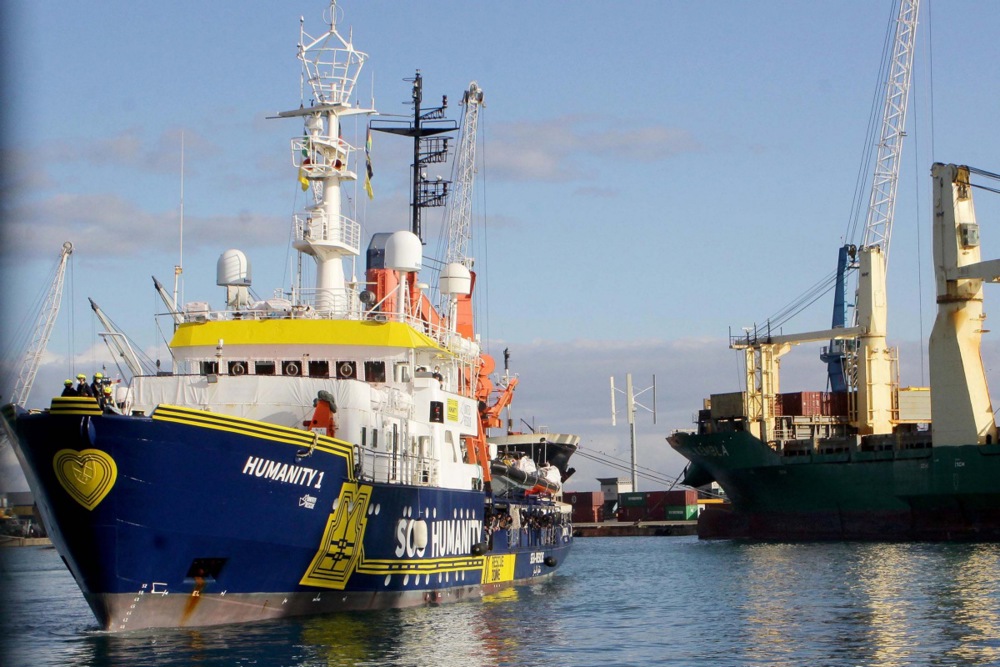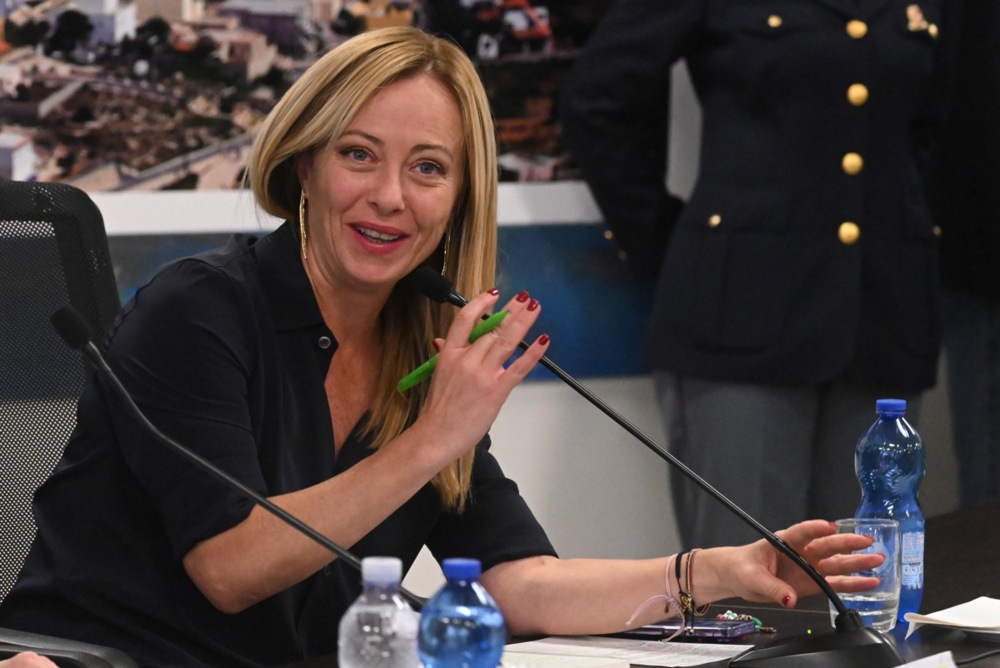Speaking to the Italian Senate on October 25, Prime Minister Giorgia Meloni prioritised the defence of Europe’s external border in order to save the Schengen free-movement zone.
Meloni underlined how much effort her government had already put into improving the country’s migration policy.
“No more open doors and redistribution,” she said. “Focus on external border protection, the relentless fight against human trafficking, agreements with third countries, legal channels for refugees and quotas of legal immigrants compatible with the needs of our economic system.”
If that did not work, Meloni said there was a “clear risk” that the Schengen Area “could be shattered and with it one of the pillars of European integration: free movement. It is a clear risk and a concern that we share”.
Irregular and illegal migration by sea has been an Italian concern for some time and, increasingly now, the same worries relate to arrivals by land.
Following the hostilities between Hamas and Israel, as well as recent terrorist attacks in France and Belgium, Italy suspended Schengen and reimposed controls at its border with Slovenia, in co-operation with the law enforcement authorities of Slovenia and Croatia.
Several other European Union countries have reinstated border inspections at select points.
Meloni opened up about the hotly contested European Migrant Pact. She said the redistribution of illegal migrants was not a real solution as it encoutraged human traffickers.
“We voted for the new Migration and Asylum Pact because the new rules are favourable but I never asked to resolve this problem by dumping it on other European countries,” she said.
“There is only one way to solve the problem in a way that everyone is happy with: stop illegal departures.”
According to Meloni, illegal migration now is cause for extreme concern. She said the Balkan route currently is the greatest security risk according to intelligence services and added that there was an added risk due to “radicalisation of often irregular immigrants”.
“All European borders are subject to unprecedented migratory pressures,” she said.
“It is disturbing to see the phenomenon of lone wolves appearing in our streets, killing innocents [and] pretending to do so in the name of God, complete with subsequent claims in the name of the Islamic State.”
It “requires us to contrast ideological unreasonableness with the reasonableness of common sense”.
Meloni also talked about “a link between terrorism and irregular immigration, this is the cause of the failed open-door policy that we have had in the past”.
She said fundamentalists want to strike fear into the hearts of ordinary people and the reaction in Europe should be strong and clear. “We have a duty to increase our vigilance, as we have done since the implementation of measures to protect Jewish communities and sensitive places throughout Italy,” she said.
Meloni also warned that some fundamentalists were “ready to strike at any moment”.
She cautioned that Europe could fall into “the trap of a clash of civilisations that could have unimaginable consequences”.
Because of that, Meloni pleaded for a de-escalation of the situation in Israel and promoted the so-called two-state solution.
“There should be no doubt in defending Israel’s right to defend itself,” she said, adding: “This is the position of the Italian government.”
According to Meloni, the goal of Hamas “was not and could not be” the defence of the Palestinian people. She claimed that the terror group was “trampling on” Palestinians in order to “provoke a wider conflict”.
She concluded that “working concretely, and with a set timeframe, on a structural solution to the Israeli-Palestinian crisis would be the most effective way to call Hamas’ bluff in the eyes of the Palestinians and help defeat it”.
Meloni reiterated Italy’s demand that Hamas free the hostages it kidnapped in its October 7 attack on Israel, “beginning with women, children, and the elderly”.





